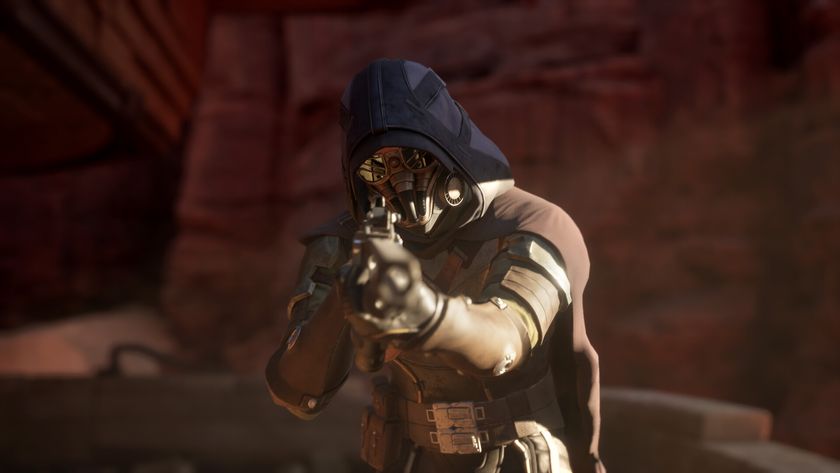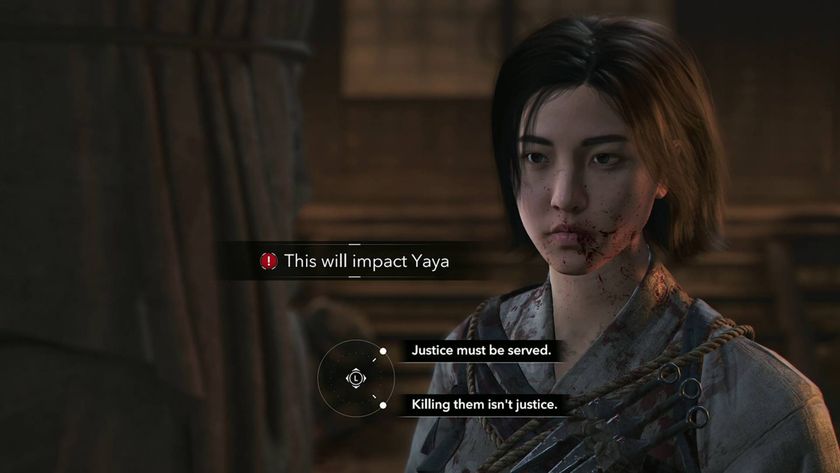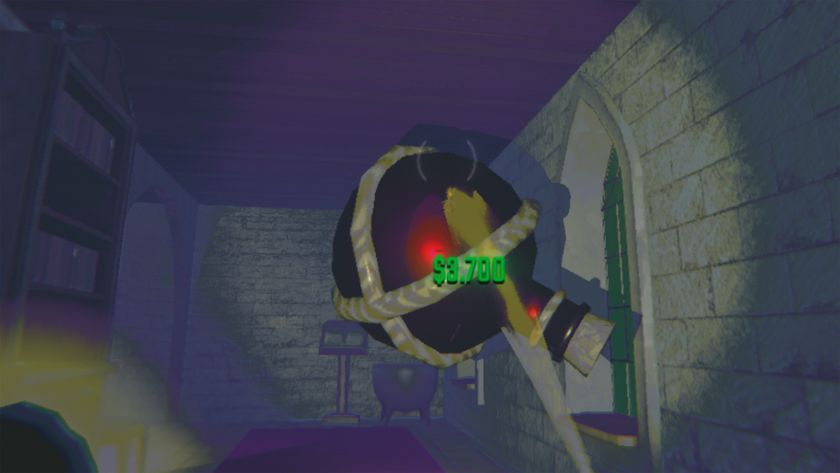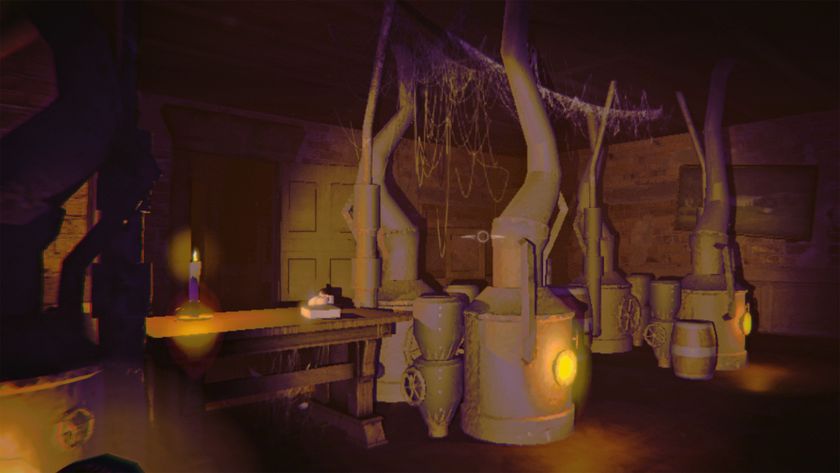All playable Baldur's Gate 3 races and which you should pick
Wondering which species you should play as in BG3?
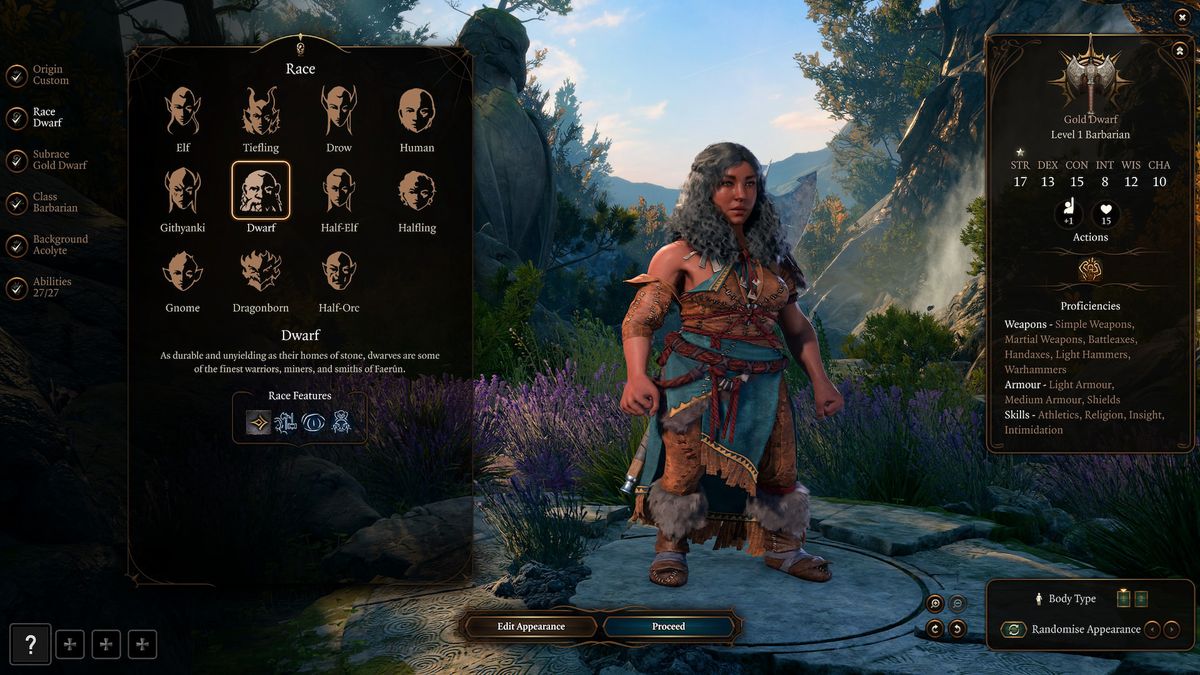
There are a total of 11 Baldur’s Gate 3’s races for you to choose from when you create a character. As if that wasn’t enough, there are 28 subraces too, each of which can have a significant impact on your run since they all have specific abilities and powers that you can use. All of the races are worth playing with in Baldur's Gate 3, with no one being clearly better than the other, but it should also be noted that some races pair better with certain classes than others. Let’s take a deep dive into the game’s race and subrace choices, as well as what each offers in terms of looks, abilities, and the ideal classes for each.
All playable races in Baldur's Gate 3
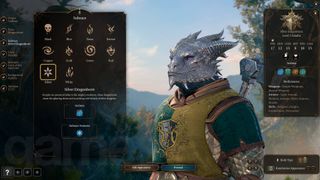
There are 11 races to pick from in Baldur's Gate 3, some of which have variant subraces you then pick from that grant additional abilities. Here's the full list:
- Dragonborn
- Subraces: Red, Green, Blue, Black, White, Gold, Silver, Bronze, Copper, and Brass Dragonborn
- Drow
- Subraces: Lolth-Sworn Drow and Selderine Drow
- Dwarf
- Subraces: Gold Dwarf, Shield Dwarf, and Duergar
- Elf
- Subraces: High Elf and Wood Elf
- Githyanki
- No subraces
- Gnome
- Subraces: Deep Gnome, Forest Gnome, and Rock Gnome
- Half-Elf
- Subraces: High Half-Elf, Wood Half-Elf, and Drow Half-Elf
- Halfling
- Subraces: Lightfoot Halfling and Strongheart Halfling
- Half-Orc
- No subraces
- Human
- No subraces
- Tiefling
- Subraces: Asmodeus Tiefling, Mephistopheles Tiefling, and Zariel Tiefling
That's a lot of choice, and while your character's heritage isn't as important as class or ability scores, it can grant useful boons and even unique qualities that can affect how you play, such as unique dialogue options. We'll go into the specifics of each race further down, but it's also worth acknowledging which classes and which races pair up most effectively, as well as which ones are most powerful as a rule - if any.
Best playable races in Baldur's Gate 3
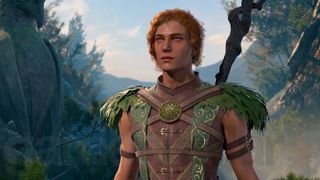
If you want the most effective choices in character creation in Baldur's Gate 3, it's more important to pair class and race together intelligently, as there's no one best race on its own - it's about how you use those attributes and abilities. That being said, if you're stuck for ideas and want some pointers, here are a few indicators on some species with a little extra edge on their own terms.
- Wood Half-Elf: Half-Elves are pretty versatile as a rule, capable of fitting any class nicely, but the Wood Half-Elf's increased movement speed and stealth proficiency makes them a little more elastic than their Drow and High Elf counterparts.
- Forest Gnome: Gnomes' resilience to effectively half of all magic attacks is a very powerful bonus, but while the Deep Gnome is probably a little better purely mechanically, I like the Forest Gnome more, as speaking to animals as a default power can open up all kind of options. Dropped in a pit full of giant spiders? Win them over to your side with honeyed words!
- Asmodeus Tiefling: The Tieflings' charming nature helps in dialogue, and resistance to fire damage can be a regular lifesaver, but it's the Asmodeus Tiefling that has the best spellcasting options, as they're just very useful and can be used most universally.
Best Baldur's Gate 3 classes and races to pair together
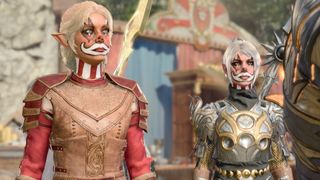
If you want to optimize a character build in D&D, certain races lend themselves to certain roles. However, Baldur's Gate 3 classes are more elastic due to developer Larian's choice to remove all racial ability increases (i.e., Elves getting a bump to their Dexterity). This means that characters are more elastic and can fit any role better than ever before. However, some of the game’s races’ inherent abilities lend themselves particularly well to pairing with other skills: here are some ideas for inspiration:
- Dragonborn
- Any subrace: Sorcerer, Wizard, Barbarian, Fighter, Paladin
- Drow
- Either subrace: Sorcerer, Wizard, Rogue, Bard, Warlock, Druid
- Dwarf
- Gold Dwarf: Fighter, Paladin, Barbarian, Cleric
- Shield Dwarf: Sorcerer, Wizard, Bard, Warlock
- Duergar: Rogue, Cleric, Paladin
- Elf
- High Elf: Wizard, Sorcerer
- Wood Elf: Monk, Ranger, Barbarian, Paladin, Fighter, Rogue
- Githyanki: Rogue, Bard, Warlock
- Gnome
- Deep Gnome: Rogue, Bard
- Forest Gnome: Bard, Sorcerer, Warlock, Paladin
- Rock Gnome: Wizard, Bard
- Half-Elf
- Drow Half-Elf: Warlock, Wizard, Sorcerer
- High Half-Elf: Wizard
- Wood Half-Elf: Monk, Cleric, Paladin, Fighter, Barbarian
- Halfling
- Lightfoot Halfling: Rogue, Bard
- Strongheart Halfling: Fighter, Cleric, Paladin, Barbarian, Druid
- Half-Orc: Fighter, Barbarian, Paladin, Cleric, Monk, Rogue
- Human: Fighter, Barbarian, Wizard, Sorcerer, Paladin
- Tiefling
- Asmodeus Tiefling: Bard, Warlock, Rogue, Sorcerer
- Mephistopheles Tiefling: Bard, Warlock, Rogue
- Zariel Tiefling: Paladin, Bard, Warlock, Rogue
With all that being said, let me reiterate: any class and race can pair together effectively. All we're listing above are strictly the optimum min-max builds, but there's no reason that a Half-Orc can't be an effective bard or a Gnome can become a deadly barbarian warrior, especially when you consider all the different Baldur's Gate 3 backgrounds and more that you can use to tweak how your character functions.
Now that that's all been established, let's look at all the different species roaming around the world of Faerun, and what they have to offer.
Dragonborn
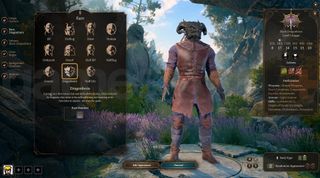
- Racial Features:
- Base racial speed: 9 meters
- Size: Medium
- Subraces
- Red Dragonborn: Fire Breath weapon and Fire Resistance
- Green Dragonborn: Poison Breath weapon and Poison Resistance
- Blue Dragonborn: Lightning Breath weapon and Lightning Resistance
- Black Dragonborn: Acid Breath weapon and Acid Resistance
- White Dragonborn: Cold Breath weapon and Cold Resistance.
- Gold Dragonborn: Fire Breath weapon and Fire Resistance
- Silver Dragonborn: Cold Breath weapon and Cold Resistance
- Bronze Dragonborn: Lightning Breath weapon and Lightning Resistance
- Copper Dragonborn: Acid Breath weapon and Acid Resistance
- Brass Dragonborn: Fire Breath weapon and Fire Resistance
- Best classes: Sorcerer, Wizard, Barbarian, Fighter, Paladin
Dragonborn aren't dragons, but did appear to be created by them, once enslaved servants of the mighty beasts. Now free, they're one of the rarest and most visually distinct of the common humanoid races, and have formed into pragmatic clans that aren't especially impressed with anything that calls itself a higher being - so Dragonborn clerics might be a rarity.
Speaking of, Dragonborn take half damage from a specific element, depending on their subrace choice, and can use a breath weapon that fires that element. This gives you two options for classes - either AOE classes like the Sorcerer or Evocation wizard, meaning you're safer from the effects of your own spells, or frontline warriors who keep enemies in breath radius and can resist fire from spellcasters.
Drow
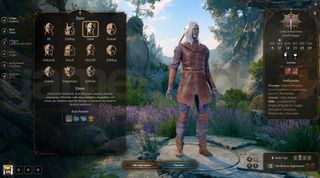
- Racial Features:
- Size: Medium
- Fey Ancestry (advantage on saving throws against being charmed, and can't be magically put to sleep)
- Drow magic (Dancing Lights as a cantrip, Faerie Fire at level 3, Darkness at level 5)
- Drow weapon training: Rapier, Shortsword and Hand Crossbow proficiency (proficient with these weapons, regardless of chosen class)
- Superior Darkvision (can see in darkness up to 24 meters)
- Subraces:
- Lolth-Sworn Drow: no variant abilities
- Selderine Drow: no variant abilities
- Best classes: Sorcerer, Wizard, Rogue, Bard, Warlock, Druid
Drow were originally elves who ventured down into the Underdark and became changed by the villainous spider goddess Lolth to better suit the subterranean landscape. Some Drow have sworn allegiance to Lolth, others have broken away from her influence, which determines the two "subraces" mentioned above. There's actually no difference in the inherent abilities of these two subraces, but it may determine certain dialogue choices in-game.
Being gifted with certain weapon proficiencies and with long-reaching darkvision, Drow will be a little better at scouting and long-range combat, or you can set them as classes that wouldn't normally be able to use any weapons, so they have a little more options - either choice is valid.
Dwarves
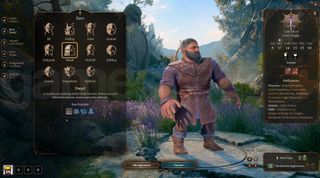
- Racial Features:
- Base racial speed: 7.5 meters
- Size: Medium
- Dwarven Resilience (advantage on saving throws against poison and resistance to poison damage)
- Dwarven combat training: Battleaxe, Handaxe, Light Hammer and Warhammer proficiency (proficient with these weapons, regardless of chosen class)
- Darkvision (can see in darkness up to 12 meters)
- Subraces
- Gold Dwarf: Dwarven Toughness (HP max increased by 1, and increases by 1 per level up)
- Shield Dwarf: Light and Medium Armor Proficiency (proficient with these armor types, regardless of chosen class)
- Duergar: Superior Darkvision (can see in darkness up to 24 meters), Duergar Resilience (advantage on saving throws to resist illusions, being charmed and paralyzed), Duergar magic (enlarge at character level 3, invisibility at character level 5)
- Best classes:
- Gold Dwarf: Fighter, Paladin, Barbarian, Cleric
- Shield Dwarf: Sorcerer, Wizard, Bard, Warlock
- Duergar: Rogue, Cleric, Paladin
A fantasy classic, Dwarves in Baldur's Gate 3 are effectively what you think they would be after Lord of the Rings and all the rest set the standard. Miners, warriors, stoic and often traditionalist, the main outlier are the Duergar. These "gray dwarves" were once normal dwarves captured by the Mind Flayers and taken to the Underdark to be experimented on in hideous ways. They've broken free of their tentacled captors, but their bodies and brains have been altered to suit the Underdark in Baldur's Gate 3 and their former masters' needs.
Each dwarf subrace has its own strengths. Obviously the Gold Dwarf is great for tank builds like the paladin, whereas the Shield Dwarf being able to apply armor proficiency makes sense on classes that normally wouldn't be able to use armor. Meanwhile, the Duergar's long sight can make them a scout, or make them a party healer with less chance to be affected by crippling debuffs, or even a rogue with their inherent invisibility magic.
Elves
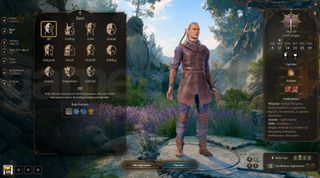
- Racial Features:
- Base racial speed: 9 meters
- Size: Medium
- Fey Ancestry (advantage on saving throws against being charmed, and can't be magically put to sleep)
- Elven weapon training: Longsword, Shortsword, Longbow and Shortbow proficiency (proficient with these weapons, regardless of chosen class)
- Darkvision (can see in darkness up to 12 meters)
- Keen senses (proficiency in perception)
- Subraces
- High Elf: High Elf Cantrip (choose 1 Wizard Cantrip)
- Wood Elf: Fleet of Foot (movement speed increased by 1.5 meters)
- Best classes:
- High Elf: Wizard, Sorcerer
- Wood Elf: Monk, Ranger, Barbarian, Paladin, Fighter, Rogue
Obviously you can play as elves in a fantasy game, and putting the Drow to one side, there are two variants here - the more academic and magical High Elves, and the Wood Elves that flourish within nature.
High Elves' free cantrip is generally more of a nice bonus, but doesn't fit to any particular class especially, so generally just pick a spellcaster class or one that only knows Simple Weapons so they can use that Elven Weapon Training. Meanwhile, the Wood Elf's speed is lovely for classes that depend on movement and closing distance.
Githyanki (Gith)
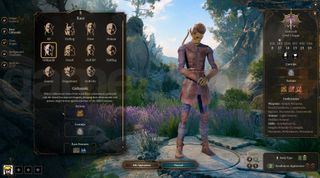
- Racial Features:
- Base racial speed: 9 meters
- Size: Medium
- Astral Knowledge (Action that allows you to gain proficiency in all skills of a chosen ability until your next long rest)
- Martial Prodigy: Light Armor, Medium Armor, Shortsword, Longsword and Greatsword Proficiency (proficient with these weapons, regardless of chosen class)
- Githyanki Psionics (can cast Mage Hand as a cantrip, gains Enhance Leap at level 3, and Misty Step at level 5)
- Subraces: None
- Best classes: Rogue, Bard, Warlock
The Githyanki are… something. They come from the Astral Plane, the chaotic space between dimensions, and have dedicated their existence to hunting and killing the Mind Flayers that once enslaved them for centuries, using a mix of psychic powers and swordplay. Having made a deal with the evil dragon goddess Tiamat, they also ride around on red dragons, hunting Mind Flayers across time and space. There's actually another variant of the Gith in D&D lore, the more calm and monastic Githzerai, but they're not a playable option at time of writing, and we've heard no indication that they're coming.
If you're playing a Gith, we recommend casting them as classes that wouldn't normally be able to use all those swords, and who could use skills effectively. Rogues and Bards are obvious, but a versatile class like the Warlock could also use it, making some unconventional builds with Baldur's Gate 3 spells.
Gnomes
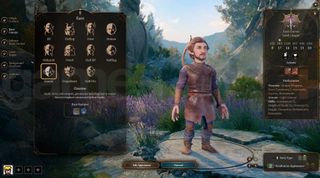
- Racial Features:
- Base racial speed: 7.5 meters
- Size: Small
- Gnome Cunning (advantage on Intelligence, Wisdom and Charisma saving throws)
- Subraces
- Deep Gnome: Superior Darkvision (can see in darkness up to 24 meters), Stone Camouflage (advantage on Stealth checks)
- Forest Gnome: Darkvision (can see in darkness up to 12 meters), Speak with Animals (can cast Speak with Animals once per long rest)
- Rock Gnome: Darkvision (can see in darkness up to 12 meters), Artificer's Lore (add twice your proficiency bonus to History checks)
- Best classes:
- Deep Gnome: Rogue, Bard
- Forest Gnome: Bard, Sorcerer, Warlock, Paladin
- Rock Gnome: Wizard, Bard
Gnomes are small, dedicated and enthusiastic figures who come in three varieties in Baldur's Gate 3 - the Forest Gnomes, who appreciate nature, the Rock Gnomes, who appreciate emerging technology and clockwork tinkering, and the Deep Gnomes, who come from the Underdark and have learned the value of stealth and caution.
Deep Gnomes clearly make for great Rogues and stealth builds, and if you want to play a Forest Gnome, you should build some charm and charisma to actually help convince those beasts to play along now that they understand you. The Rock Gnome, being an egghead, will serve well enough with spellcasters and intelligence builds.
Half-Elves
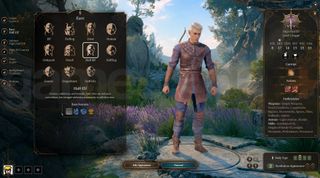
- Racial Features:
- Base racial speed: 9 meters
- Size: Medium
- Fey Ancestry (advantage on saving throws against being charmed, and can't be magically put to sleep)
- Darkvision (can see in darkness up to 12 meters)
- Civil Militia: Proficient with spears, pikes, halberds, glaives, light armor and shields.
- Subraces
- Drow Half-Elf: Drow Spellcasting (can cast Dancing Lights as a cantrip, gains Enhance Leap at level 3, and Misty Step at level 5)
- High Half-Elf: 1 Wizard Cantrip
- Wood Half-Elf: Fleet of Foot (movement speed increased by 1.5 meters)
- Best classes:
- Drow Half-Elf: Warlock, Wizard, Sorcerer
- High Half-Elf: Wizard
- Wood Half-Elf: Monk, Cleric, Paladin, Fighter, Barbarian
Half-Elves are exactly what they sound like - folks who had one Elf parent and one Human parent. From the former they get fun, specific powers based on what kind of Elf their parent was, and from the humans they get a bit of that patented flexibility that allows them to fit in anywhere and match any Baldur's Gate 3 skills.
Half-Elves fit any class well enough, but the Wood Half-Elf is the only one with a really noteworthy power that can change how you play. Like the standard Elf parent, use it on classes that need to quickly close distance and get around the battlefield.
Halflings
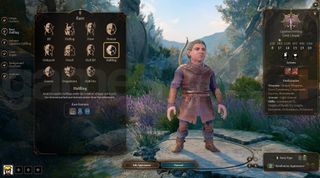
- Racial Features:
- Base racial speed: 7.5 meters
- Size: Small
- Halfling Luck (if you roll a Natural 1 on an attack, ability check or saving throw, reroll it and take the new result)
- Brave (advantage on saving throws to resist being frightened)
- Subraces
- Lightfoot Halfling: Naturally Stealthy (Advantage on Stealth checks)
- Strongheart Halfling: Strongheart Resilience (advantage on saving throws against poison and resistance to poison damage)
- Best classes:
- Lightfoot Halfling: Rogue, Bard
- Strongheart Halfling: Fighter, Cleric, Paladin, Barbarian, Druid
Halflings are Dungeons & Dragons' totally legally-distinct version of Hobbits - small, affable but determined folk with a general cultural appreciation for the simple things in life. Lightfoot halflings are quiet, friendly travellers, while Strongheart Halflings are tougher and often a little more brazen.
The naturally stealthy qualities of the Lightfoot means you'll absolutely want to make them a stealth class, whereas the Strongheart's ability to tank certain forms of damage means you might as well make them a frontline fighter, though it's a little less dramatic as a perk.
Half-Orcs
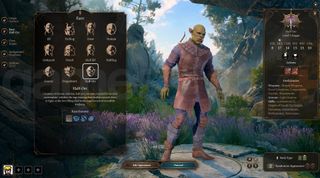
- Racial Features:
- Base racial speed: 9 meters
- Size: Medium
- Darkvision (can see in darkness up to 12 meters)
- Savage Attack (When you score a critical hit with a melee weapon, use triple the damage dice, not double)
- Relentless endurance (Once per long rest, if you would take enough damage to hit zero hit points, you instead drop to 1).
- Subraces: None
- Best classes: Fighter, Barbarian, Paladin, Cleric, Monk, Rogue
Half-Orcs are the tusky counterpart to the Half-Elf - people who had one human and one Orc parent. Orcs have their reputation as warriors and emotion-fueled berserkers, but it's up to you how much that holds true to any Half-Orc you play as - their passion and unique joie-de-vivre could apply to any number of things.
Half-Orcs are best suited to melee fighters, surprising nobody, though they don't have to be Barbarians and brutalists. Considering how often the Rogue gets critical hits and advantage, there are merits in doubling down on that, and Relentless Endurance isn't just for tanks, but anybody for whom it's important to keep standing.
Humans
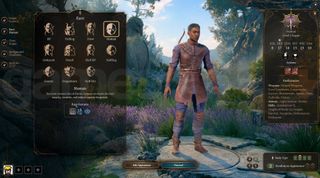
- Racial Features
- Base racial speed: 9 meters
- Size: Medium
- Civil Militia (Proficient with spears, pikes, halberds, glaives, light armor and shields)
- Human versatility (Choose a skill to be proficient in. Carrying capacity increased by 25%)
- Subraces: None
- Best classes: Fighter, Barbarian, Wizard, Sorcerer, Paladin
If your favourite drink is tap water and you feel vanilla ice cream is just too spicy, you might want to pick a Human. Humans are the most common race in Faerun and are found in practically any community, with a certain amount of versatility innate to this strange species.
The least specialized of races, humans apparently having guard-friendly weapons and armor in their DNA means that making them a mage will give you some extra options if anybody gets too close. Additionally, with their ability to hoist around gear, they get a bigger bonus to that by investing in a strength-based class.
Tieflings
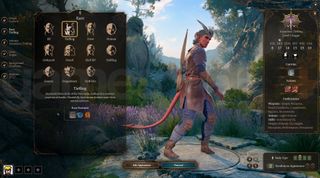
- Racial Features:
- Base racial speed: 9 meters
- Size: Medium
- Darkvision (can see in darkness up to 12 meters)
- Hellish Resistance (All fire damage you take is halved)
- Subraces
- Asmodeus Tiefling: Can cast Produce Flame as a cantrip (gain access to Hellish Rebuke at level 3, and Darkness at level 5)
- Mephistopheles Tiefling: Can cast Mage Hand as a cantrip (gain access to Burning Hands at level 3, and Flame Blade at level 5).
- Zariel Tiefling: Can cast Thaumaturgy as a cantrip (gain access to Searing Smite at level 3, and Branding Smite at level 5).
- Best classes:
- Asmodeus Tiefling: Bard, Warlock, Rogue, Sorcerer
- Mephistopheles Tiefling: Bard, Warlock, Rogue
- Zariel Tiefling: Paladin, Bard, Warlock, Rogue
Tieflings are descendants of mortals who made some sort of pact or swore allegiance with one powerful Devil or another, and had their bloodline marked because of it, resulting in a slightly devilish appearance - horns, tails, unique skin tones, that sort of stuff. But while Devils are definitely evil, Tieflings can be whatever they want, and have free rein to act good or bad. The specifics of Tiefling subraces vary depending on which Archdevil you're connected to: Asmodeus, the god of all devils, the skulking mage and scholar Mephistopheles, or the fallen angel and general of Hell, Zariel - who actually has a link to the Baldur's Gate 3 Karlach companion.
Tieflings getting a grab-bag of tricks means that they can be any class easily enough, though you can double-down on their versatility by making them one of the jack-of-all-trades classes, like the Rogue, Bard or Warlock.
© 12DOVE. Not to be reproduced without permission
Sign up to the 12DOVE Newsletter
Weekly digests, tales from the communities you love, and more

Joel Franey is a writer, journalist, podcaster and raconteur with a Masters from Sussex University, none of which has actually equipped him for anything in real life. As a result he chooses to spend most of his time playing video games, reading old books and ingesting chemically-risky levels of caffeine. He is a firm believer that the vast majority of games would be improved by adding a grappling hook, and if they already have one, they should probably add another just to be safe. You can find old work of his at USgamer, Gfinity, Eurogamer and more besides.
- Joe ChiversContributor
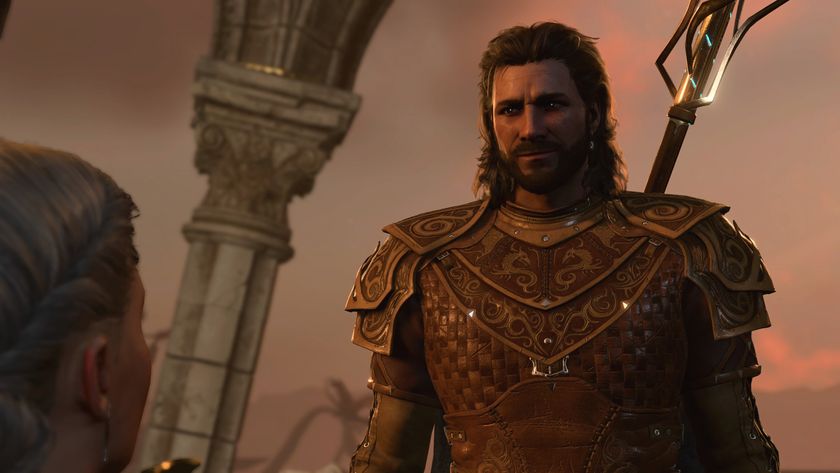
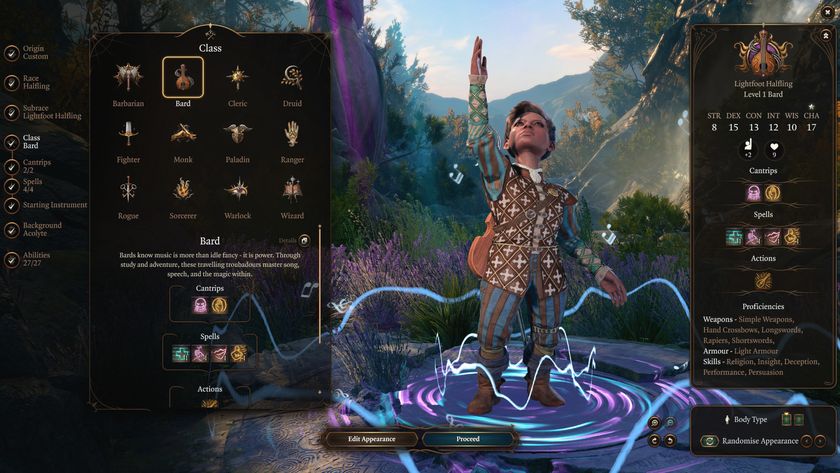
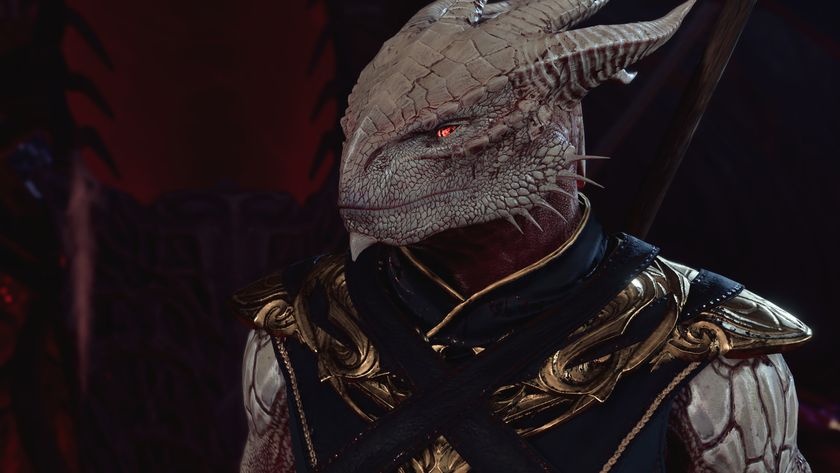
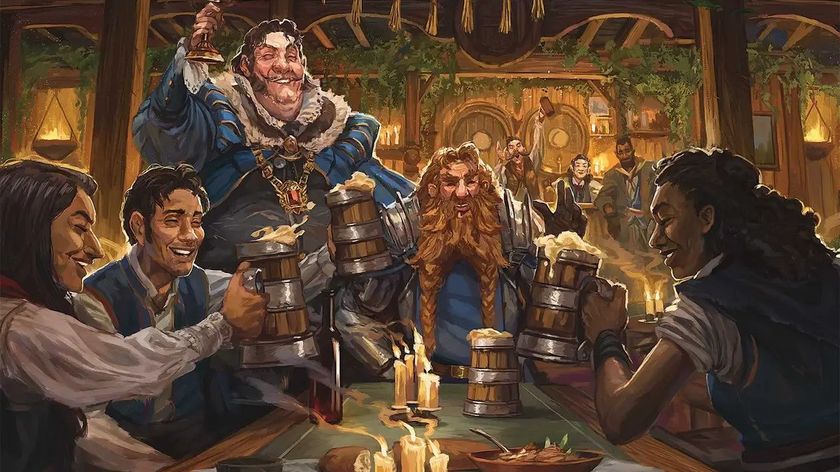
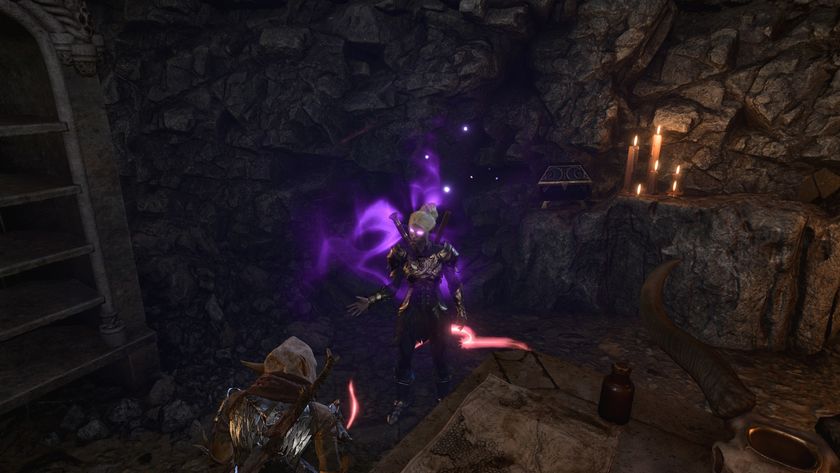
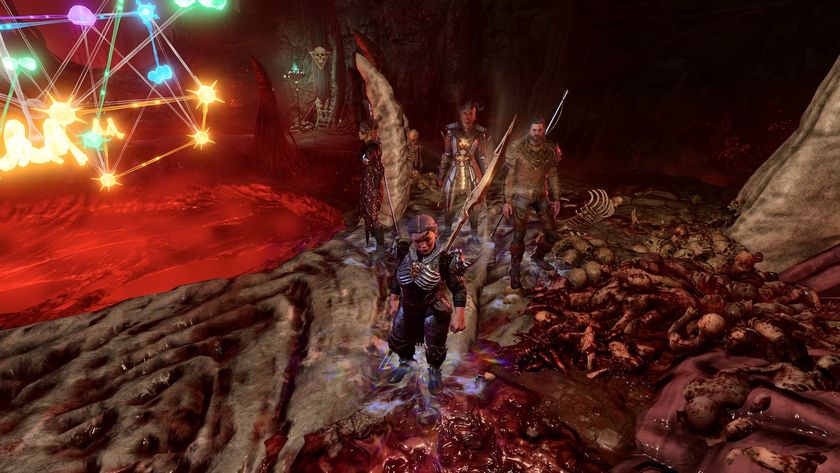

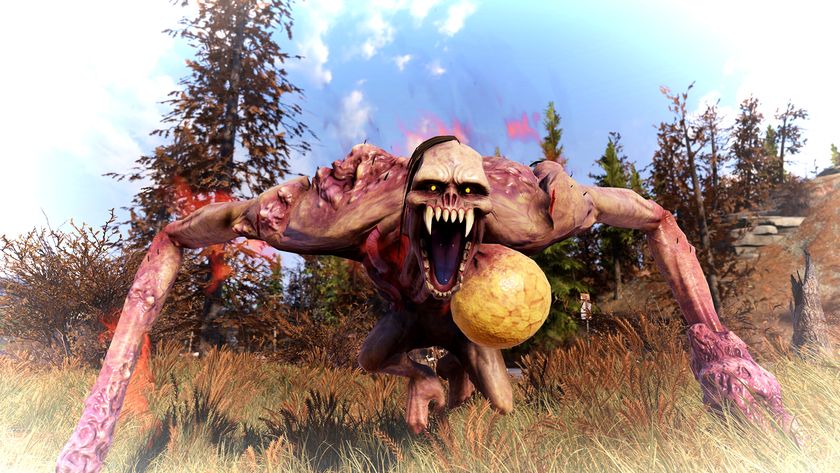
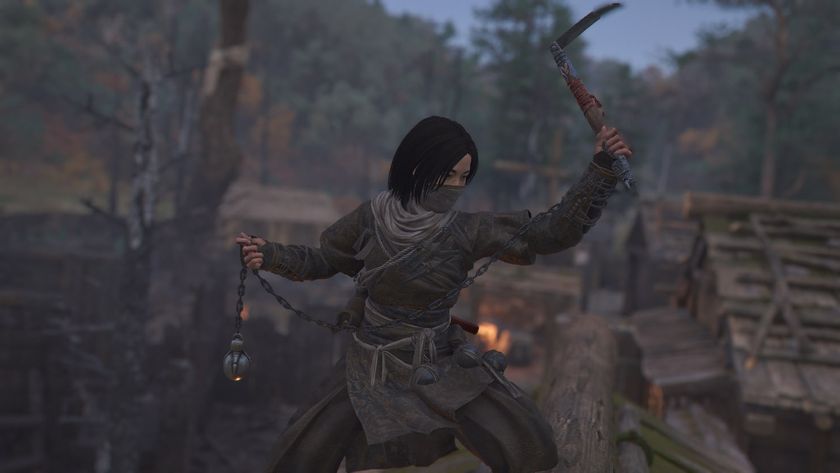
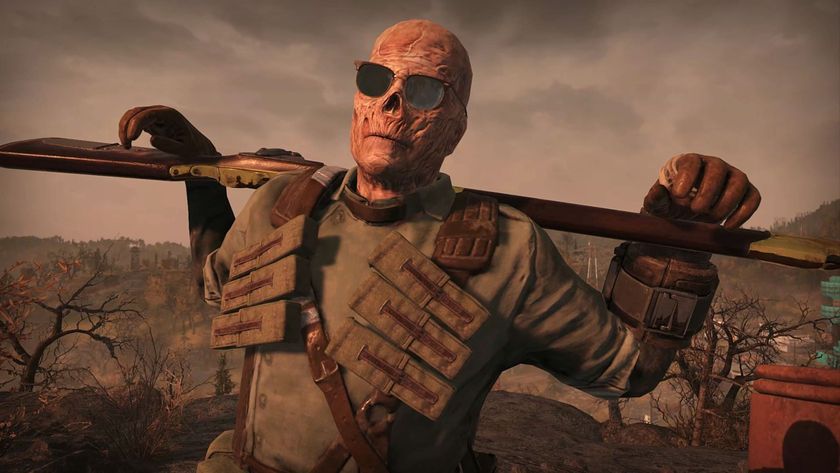

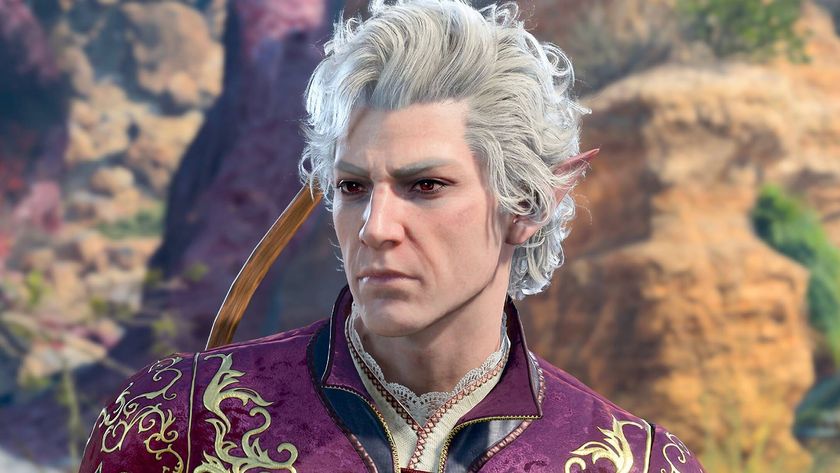
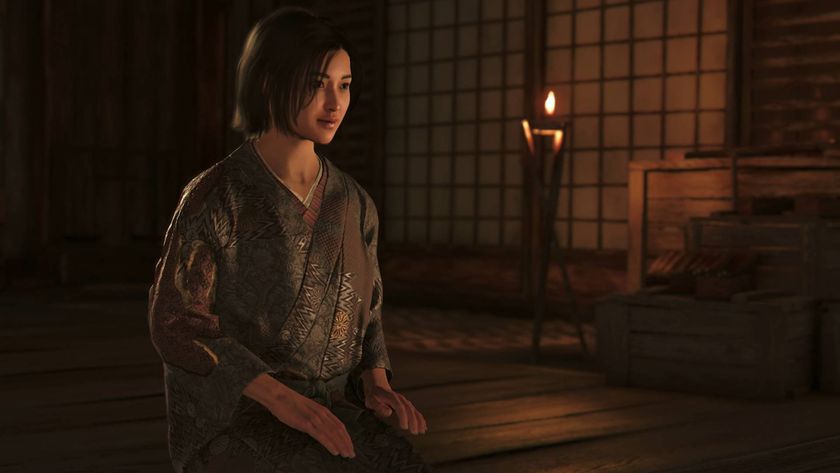

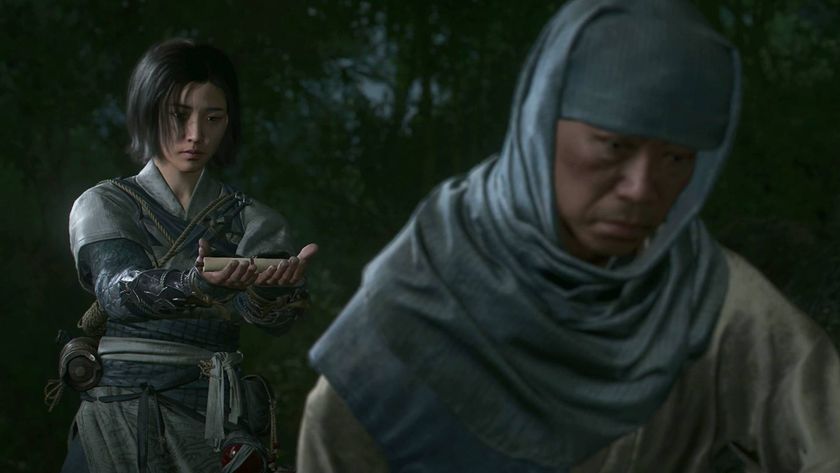
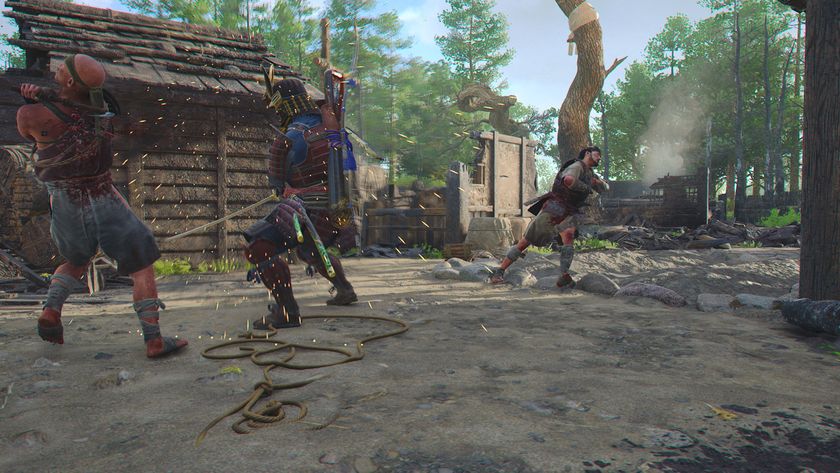
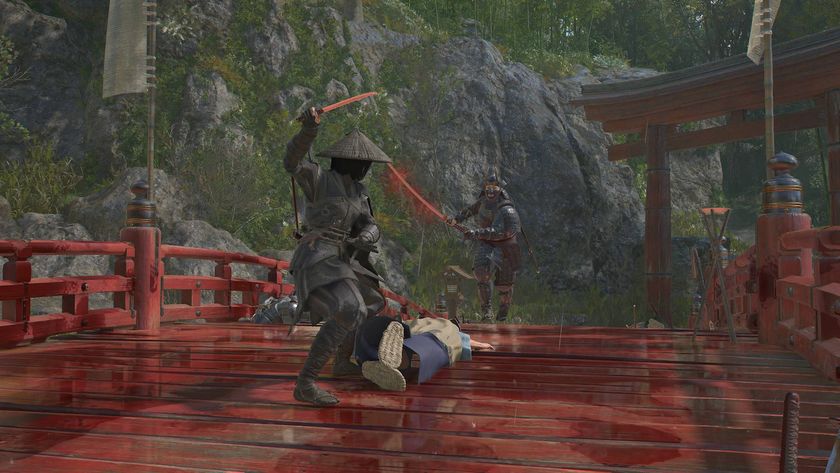
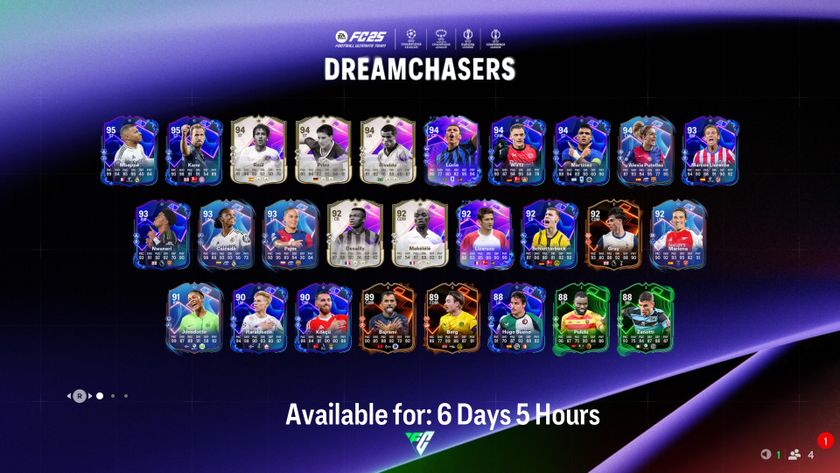

Witcher 3 and Cyberpunk 2077 studio CD Projekt Red won't make survival games just because they're popular, but Netflix's Edgerunners anime is fueling dreams bigger than RPGs

After 14 years at Bethesda, Skyrim and Fallout veteran made his final settlement in just 2 days – but only because he'd made some rough ones before that
